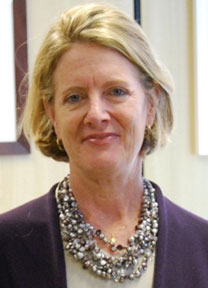Ending violence against women is a global priority
Dr. Rebecca Reichmann Tavares
"Women hold up more than half the sky," Sri Lankan President
Maithripala Sirisena said during a high-level event at United Nations
headquarters in September this year, which saw 80 world leaders coming
together to commit to ending discrimination against women by 2030. "It
is a proven and accepted fact that women's empowerment and their
contribution are vital for the sustainable progress of all our nations,
and the world."
 |
|
Dr. Rebecca Reichmann
Tavares |
The event was organised against the backdrop of the adoption of a new
global development agenda by UN Member States. Transforming Our World:
The 2030 Agenda for Sustainable Development sets out 17 global goals,
including a standalone goal on gender equality - the result of intense
and sustained advocacy by UN Women and women's groups. The targets
specified under the goals include the "elimination of all forms of
violence against all women and girls in the public and private spheres,
including trafficking and sexual and other types of exploitation" as
well as the elimination of "all harmful practices, such as child, early
and forced marriage and female genital mutilation".
Sri Lanka has made important strides in the journey towards gender
equality. It adopted a 'Women's Charter' in 1993, two years before the
globally agreed Beijing Declaration and Platform for Action which
recommended that countries draw up national plans of action to advance
women's rights.In addition, Sri Lanka's Prevention of Domestic Violence
Act, 2005,seeks to address intra-family violence by providing a civil
remedy. Existing laws have also been strengthened to enhance the scope
of legal protection for women through amendments to the Penal Code. This
includes Amendment No. 22 of 1995 which defined constituted rape, incest
and sexual abuse, harassment and exploitation.The Ministry of Women and
Child Affairs is in the process of formulating a National Action Plan on
Sexual and Gender-Based Violence.
These are all very significant steps. However, in Sri Lanka and
across all countries, violence against women continues to be one of the
most widespread human rights violations. It is the outcome of pervasive
discrimination and inequality and not only devastates lives but also
damages communities and impairs development. Worldwide, one in three
women have experienced physical or sexual violence in their lifetime,
many of them from an intimate partner.
Ending violence against women is one of the UN's key
priorities.Around the world, in partnership with governments and women's
groups, UN Women helps governments strengthen and implement national
laws and policies to address violence against women in conformity with
international norms and standards. It helps women access the police and
the justice system and provides much-needed support to survivors of
violence. It focuses on prevention, for example by working with
municipal bodies and community partners to ensure that cities are safe
spaces for women and girls.
Through the UN Trust Fund to End Violence against Women, UN Women
supports initiatives to end gender-based violence where they matter
most.It manages the United Nations Secretary-General's UNiTEto End
Violence Against Womencampaign, observing the 25th of every month as
Orange Day, symbolizing a future free from violence against women and
girls. To mark 16 Days of Activism to End Violence against Women, from
25 November to 10 December, UN Women mobilizes governments, civil
society, students, volunteers, lawmakers and policymakers, urging action
to prevent and end violence against women. In 2014, for example, UN
Women and UN partners along with Sri Lanka's Ministry of Child
Development and Women's Affairs launcheda social media campaign that
informed users about a helpline for victims of gender-based violence.
Developed and managed by the National Committee on Women of the Ministry
of Women and Child Affairs, the helpline provides information on legal
aid, psycho-social support and counselling services available for
survivors of violence. The trilingual campaign is estimated to have
reached 256,000 users across Sri Lanka.
UN Women is convinced that gender equality is not a 'women's issue'.
Involvement of men and boys is crucial to the success of all efforts to
raise awareness, counter negative stereotypes and end violence against
women. UN Women's HeforSheCampaign speaks directly to this, providing a
platform to men and boys to show their solidarity and stand up for
gender equality. The Campaign will be launched in Sri Lanka in 2016,
engaging individuals, communities, non-governmental organisations,
private corporations, government leaders, activists and celebrities as
agents of change.
The global march towards gender equality is now unstoppable, and Sri
Lanka can show the way.President Sirisena's commitment is an indication
of strong political will to bring transformative change. This
commitment, when matched by adequate resources and the involvement of
the private sector, civil society, academia and women's groups, can
significantly accelerate the momentum towards gender equality and the
achievement of 'Planet 50:50' by 2030.
Dr. Rebecca Reichmann Tavares is Representative, UN Women
Multi-Country Office for India, Bhutan, Maldives and Sri Lanka |

